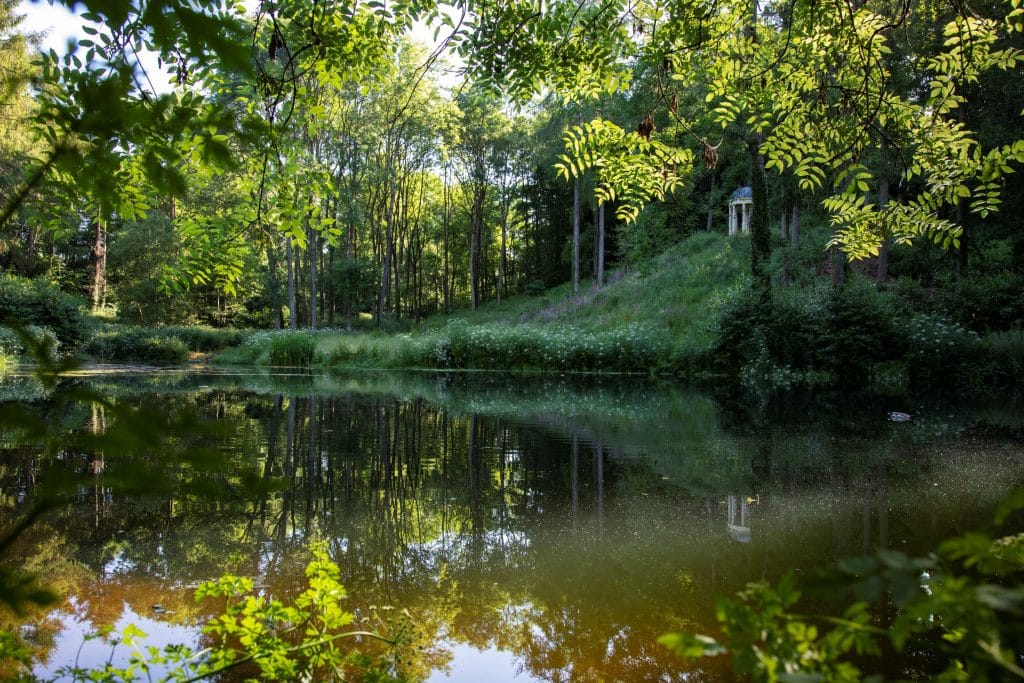
University of Gloucestershire researchers are collaborating with the renowned Hestercombe House and Gardens – famed for its unique collection of gardens – on an innovative project exploring solutions to water conservation for a more resilient and sustainable future.
Experts from the University’s School of Creative Arts and Countryside and Community Research Institute (CCRI) are joining forces with Hestercombe, near Taunton, to consider how visual and sound art practices incorporating flowers, trees, plants and landscapes can be used to find nature-based solutions in relation to climate change.
Critical insights from the study – entitled Test Bed – will help to inform best practice in water management and water conservation at other gardens and parks across the UK.
Spanning three centuries of garden design, Hestercombe offers a unique combination and varied experience of the Georgian Landscape Garden (designed 1750s), the Victorian Terrace and the Edwardian Formal Gardens (early 1900s).
The study will include an examination of whether more resilient species of trees, plants and flowers should be planted instead of flora expected by visitors that is regarded as more in keeping with the landscapes depicted, for example, within paintings of the gardens at Hestercombe.
The research team will assess the impact of garden design on sustainability and the benefits of seasonal water systems to the environment, amid a scarcity of water during some months and an abundance of water in others.
The researchers will utilise the mill devices, machines and water systems in place at Hestercombe that channel water from the top of the gardens, down the valleys, around the site and to other locations.
Dr Matthew Lovett, Associate Head of the University’s School of Creative Arts, said: “We are living in the age of the ‘Anthropocene’, where the extent of humanity’s impact on Earth’s ecosystems is becoming ever clearer.
“As a School of Creative Arts, we see creative practice and research as a way of understanding the present and shaping the future. We’re excited to be working with Hestercombe House and Gardens to explore how – through creative research within living environments – we can envision ways of being that are attuned to the natural world.”
Hestercombe’s Creative Director, Tim Martin, said: “At a time when the world’s climate is changing rapidly, Hestercombe needs to respond, by working with others to contribute and develop new and natural ways of not only managing and conserving water, but also ways of successfully managing our historic landscapes for future generations to come. ‘Test Bed’ is a project that could become central to sharing best practice with others.”
Test Bed will be launched at a theatrical and experimental public event at Hestercombe House and Gardens on 14 May, featuring contributions from members of the research team and a series of audio-visual works structured around ideas of how Georgian gardens were animated by incorporating moonlight, water and sound.




